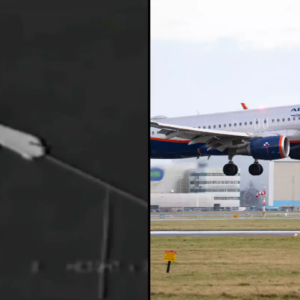This summer, the 70th anniversary of the Korean War armistice was observed aboard the USS Midway Museum. In addition to being America’s first Cold War conflict in Asia, the fighting in Korea played a dramatic role in the very survival of the United States Marine Corps.
The North Korean invasion of South Korea on June, 25, 1950 caught the U.S. government off guard. They sent in the military in an attempt to repulse it. Unfortunately, the American units were ill-equipped for the mission, which led to humiliating retreats, and U.S. airpower was incapable of stemming the communist onslaught.
The reasons for these battlefield embarrassments were due to U.S Army General Douglas MacArthur’s neglect of the forces he commanded in Japan, and the draconian defense cuts made following World War II by an antagonistic President Harry Truman. The Army was under-strength and under trained using aging equipment; the Air Force now devoted itself primarily to delivering the atomic bomb to the neglect of the continual development of tactical air power; and the Navy was a fraction of its 1945 size, barely retaining carrier aviation and with only one aircraft carrier on patrol in the Far East.

Caught up in the turbulence of this post-1945 downsizing, the U.S. Marine Corps was fighting for its very existence. An ardent supporter of military unification, Truman staunchly encouraged the Army to propose downgrading the Marine Corps to a nothing more than naval constabulary. While resolute congressional support at the end of World War II thwarted those plans, the Corps was on notice that they had no friend in the president.
By 1947, with the Department of Defense now formally established, the Marines learned that the Army had consigned them the mission of amphibious warfare, along with restrictions on the force strength, and gave them no place on the Joint Chiefs of Staff.
While the combat readiness of the other services faltered, the Marines at least succeeded in retaining a high number of combat veterans and maintained tough standards for new recruits. By the start of the Korean War, the U.S. Marine Corps was really the only competent fighting force America could bring to the table.
Unlike the substandard Army units rushed into Korea from undemanding occupation duty in Japan, the Marines arrived at full strength, with new equipment, including heavy M-26 Pershing tanks, and its own organic air support. More importantly, the Marines arrived with World War II combat veterans and motivated younger ranks.

After a harrowing Army retreat from central South Korea in late summer 1950, Army Gen. Walton Walker saw an opportunity to use fresh Army units and the Marines to counterattack and destroy the North Korean divisions.
Miles north, yet another sector was in jeopardy. Gen. Walker finally had to call upon the Marines again to restore the line, and after two days of stiff fighting, the systemic application of firepower and aggressive assault by the Marines wrecked a newly-arrived North Korean division.

Despite the Army’s embarrassing setbacks and the Marines battlefield triumphs, Truman continued to criticize the Corps. “The Marine Corps is the Navy’s police force,” said the president in response to a suggestion that the Marine Corps be expanded, “And as long as I am president, that is what it will remain.”
While political tempers flared back home, the 1st Marine Division stunned the North Koreans with its amphibious assault at Inchon in September 1950. The landings led to the recapture of Seoul, the capital of South Korea.
Faulty Army deployments along the Yalu River as winter set in contributed to a disaster for United Nation forces in the face of a massive Chinese onslaught. As the front crumbled in the Chosin sector, the Marines struck back towards the coastline, inflicting heavy casualties on surrounding Chinese units.
While Truman’s disdain for the Marines continued to magnify as the Korean War continued, their importance was evident to all those in government leadership. On June 28 1952, Truman ultimately authorized the expansion of the Marine Corps. Furthermore, the Commandant of the Marine Corps was at last granted membership on the Joint Chiefs of Staff. Other debates would rage in later years concerning the Marines, but their valor and effectiveness, especially at a time of the Army’s repeated failures in combat, ensured its survival as a full-fledged branch of the U.S. Armed Forces.
(By Karl Zingheim, Midway Historian)
News
The “Red Zone” – Land Still Abandoned Due to the Dangers Left by the First World War
The “Red Zone” – Land Still Abandoned Due to the Dangers Left by the First World War In the aftermath of the First World War, large areas of northeast France were left in ruin. Years of constant siege warfare along…
Before Becoming a Big-Name Actor, Richard Todd was a Paratrooper Who Fought at Pegasus Bridge
Before Becoming a Big-Name Actor, Richard Todd was a Paratrooper Who Fought at Pegasus Bridge Photo Credit: 1. Sgt. Christie, No. 5 Army Film & Photographic Unit / Imperial War Museums / Wikimedia Commons / Public Domain 2. Silver Screen…
The Potsdam Giants: A Prussian Infantry Regiment Of Nothing But Very Tall Soldiers
The Potsdam Giants: A Prussian Infantry Regiment Of Nothing But Very Tall Soldiers Frederick William I inspecting his giant guards known as The Potsdam Giants, a Prussian infantry regiment No 6, composed of taller-than-average soldiers. Frederick William I of Prussia,…
Ellen DeGeneres cuts a very casual figure as she drives around in her Ferrari
Ellen DeGeneres cuts a very casual figure as she drives around Montecito in her Ferrari… while preparing to embark on her stand-up tour Ellen DeGeneres cut a very casual figure as she made her way around Montecito on Tuesday morning. The…
“I’m heavily tattooed and keep getting rejected for jobs – it’s not fair”
Heavily tattooed OnlyFans star, 23, with multiple piercings on her FACE slams TJ Maxx for rejecting her for a job – accusing retailer of unfairly judging her dramatic look A woman has accused TJ Maxx of rejecting her for a…
All 75 passengers killed in plane crash after pilot let his chirldren control the plane
Praying, turning the engine off by accident and letting KIDS play with the controls: The worst blunders made by pilots before a crash revealed Every time we board a plane, we put our lives in the hands of the pilot….
End of content
No more pages to load











